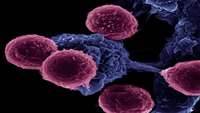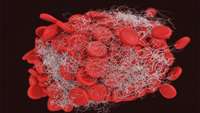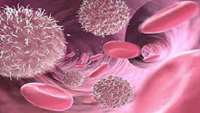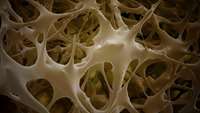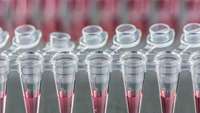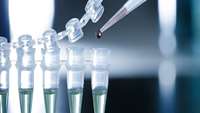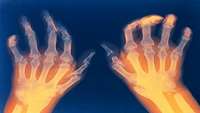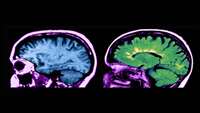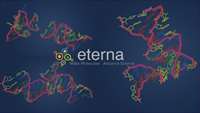Phase 1 clinical trial using mbIL21 ex-vivo expanded donor-derived NK cells after haploidentical transplantation
Relapse has emerged as the most important cause of treatment failure after allogeneic hematopoietic stem cell transplantation (HSCT). To test the hypothesis that NK cells can decrease the risk of leukemia relapse we initiated a phase-1 dose-escalation study of expanded donor NK cells infused before and after haploidentical HSCT for high-risk myeloid malignancies
Sangamo And Pfizer Announce First Patient Receives Treatment In Phase 1-2 Clinical Trial Evaluating SB-525 Investigational Gene Therapy For Hemophilia A
Sangamo Therapeutics, Inc. (Nasdaq: SGMO) and Pfizer Inc. (NYSE: PFE) today announced that the first patient received treatment in the Phase 1/2 clinical trial ("the Alta trial") evaluating SB-525, an investigational gene therapy for patients with Hemophilia A, a rare genetic blood disorder.
Engraftment and in vivo proliferation advantage of gene corrected mobilized CD34+ cells from Fanconi anemia patients
Previous Fanconi anemia (FA) gene therapy studies have failed to demonstrate engraftment of gene corrected hematopoietic stem and progenitor cells (HSPC) from FA patients, either after autologous transplantation or infusion into immunodeficient mice. In this study we demonstrate that a validated short transduction protocol of G-CSF plus plerixafor-mobilized CD34+ cells from FA-A patients with a therapeutic FANCA-lentiviral vector corrects the phenotype of in vitro cultured hematopoietic progenitor cells.
Pregnant womens stem cells could treat osteoporosis, say scientists
People with fragile bones could have their skeletons beefed up with infusions of stem cells harvested from pregnant women, researchers say.
Cambridge scientists create first self-developing embryo from stem cells
Artificial mouse cells grown from outside body in a blob of gel shown to morph into primitive embryos, roughly equivalent to one third of way through pregnancy
Kymriah, First CAR-T Therapy Approved: 4 Pharma Stocks in Focus
Of late, biotechnology and pharmaceutical companies are investing in immuno-oncology research therapies as it remains a key area of focus, thanks to its vast growth potential. Last week, the immuno-oncology space grabbed investors attention with the FDA approving Novartis AG s NVS breakthrough gene transfer treatment, Kymriah (tisagenlecleucel) suspension for the treatment of patients up to 25 years of age with B-cell precursor acute lymphoblastic leukemia (ALL) that is refractory or in second or later relapse
FDA Commissioner Announces Stem Cell Enforcement Shift, Plans to Develop Comprehensive Regenerative Medicine Policies
One of the most promising new fields of science and medicine is the area of cell therapies and their use in regenerative medicine. These new technologies, most of which are in early stages of development, hold significant promise for transformative and potentially curative treatments for some of humanity’s most troubling and intractable maladies. Recent advances in our basic knowledge of the pathways involved in tissue damage and regeneration have combined with remarkable progress in adult stem cell biology to put us at a genuine inflection point in the history of medicine. The prospect of clinical tissue repair strategies is a tangible reality.
PUMA gene delivery to synoviocytes reduces inflammation and degeneration of arthritic joints
In rheumatoid arthritis (RA), the proliferation of fibroblast-like synoviocytes (FLS) is the cause of chronic inflammation in joints and of joint damage.
Stem cell treatment that reboots entire immune system might be ground breaking MS therapy
UK doctors in Sheffield say patients with multiple sclerosis (MS) are showing "remarkable" improvements after receiving a treatment usually used for cancer.
Online game challenges players to design on/off switch for CRISPR
A team of researchers at the Stanford University School of Medicine has launched a new challenge for the online computer game Eterna in which players are being asked to design an RNA molecule capable of acting as an on/off switch for the gene-editing tool CRISPR/Cas9.


